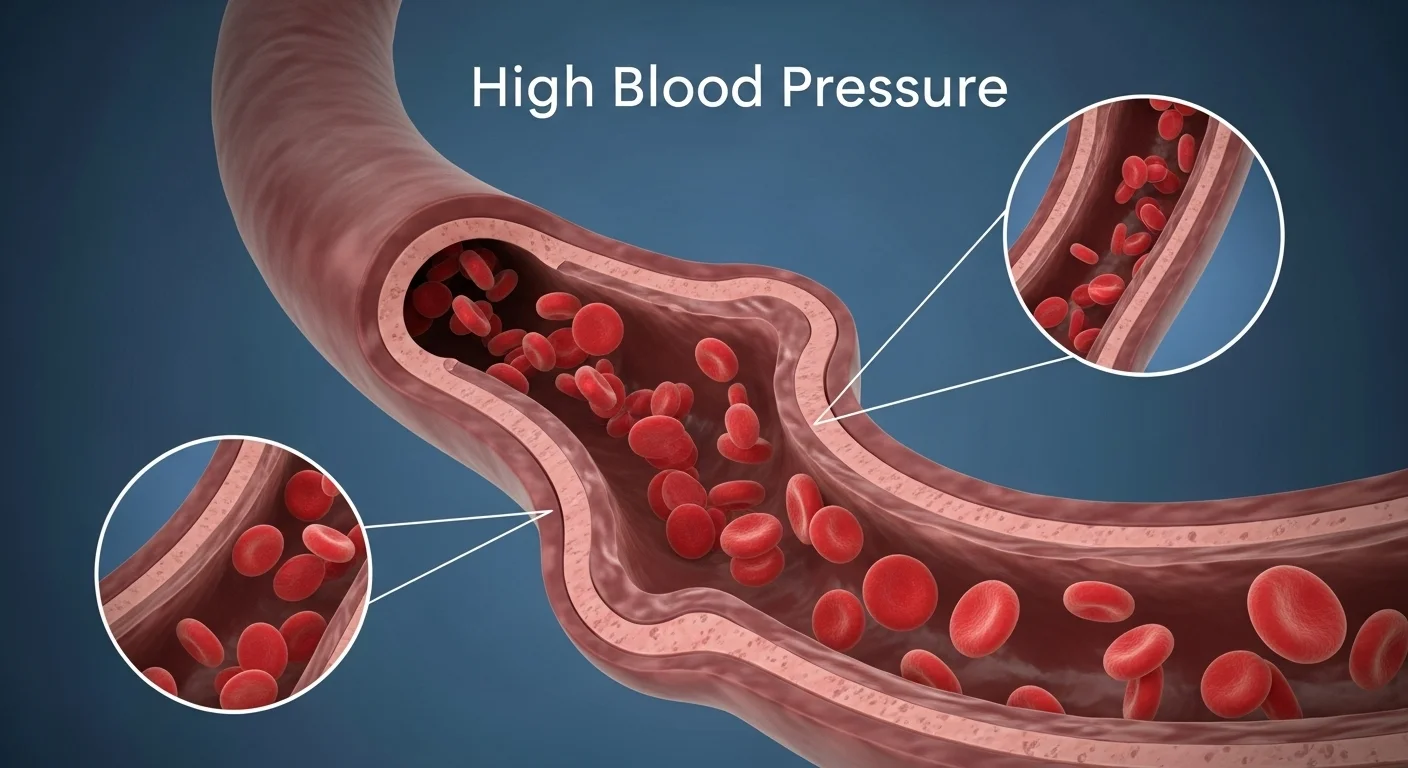Is Your Lifestyle Killing You? How to Prevent Heart Disease, Stroke, and High Blood Pressure After 50
Heart disease, stroke, and high blood pressure – these cardiovascular diseases are major threats to health and longevity, often leading to disability and even death. The good news is that they are largely preventable by addressing key risk factors. As we enter our 50s, the risk of developing these conditions significantly increases, making proactive management crucial for maintaining a healthy and active life. Let’s re-examine the dangers of high blood pressure and cardiovascular disease and understand how to mitigate these risks.
Why Preventing and Managing High Blood Pressure, Diabetes, and High Cholesterol is Critical After 50
A recent study published in a prestigious medical journal, The New England Journal of Medicine, highlighted the dramatic impact of lifestyle factors on lifespan. The research indicated that women with high blood pressure, diabetes, high cholesterol, obesity, and a smoking habit at age 50 could see their lifespan reduced by 14.5 years, while men with the same risk factors faced a reduction of 11.8 years. Furthermore, the risk of developing cardiovascular disease was significantly elevated, reaching 24% for women and 38% for men. The study, analyzing data from over 2 million individuals across 133 studies, emphasized that managing high blood pressure and quitting smoking between the ages of 50 and 55 were the most effective strategies for reducing cardiovascular risk.
High Blood Pressure: A Silent Killer Damaging Your Heart and Brain
While high blood pressure itself isn’t a direct cause of death, it’s a major contributor to a range of serious complications, including heart failure, coronary artery disease, and stroke. High blood pressure is arguably the most significant risk factor for developing cardiovascular and cerebrovascular diseases.
The link between weight and blood pressure is undeniable. Reducing weight, especially abdominal fat, can significantly lower blood pressure. Abdominal obesity is strongly correlated with high blood pressure, high cholesterol, diabetes, and increased mortality from coronary artery disease. Weight loss is particularly beneficial for individuals with diabetes, high cholesterol, and left ventricular hypertrophy (enlarged heart muscle).
The Power of Reducing Salt Intake
High blood pressure has a strong correlation with stroke. Dietary management is crucial, especially in populations where stroke incidence is high. Lifestyle modifications are the first line of defense against high blood pressure. These include limiting sodium intake, weight loss (if overweight), moderate alcohol consumption, and regular aerobic exercise. Studies show that reducing salt intake by half can lower systolic blood pressure by an average of 4-6 mmHg and reduce the risk of cardiovascular disease.
Women and Menopause: A Critical Turning Point
A predominantly plant-based diet can contribute to lower blood pressure, likely due to the fiber and potassium content of fruits and vegetables, and the reduced intake of saturated fats from meat. A balanced diet with all essential nutrients is key, but minimizing simple sugars and fats is equally important. Consuming one or two cups of coffee daily generally doesn’t have a significant impact on blood pressure.
Smoking, however, constricts blood vessels and must be avoided completely. Exposure to secondhand smoke is also detrimental. Be mindful of sodium levels in common dishes like ramen, noodles, soups, and stews. It’s better to leave some broth behind rather than consume excessive salt.
For women, menopause marks a significant shift. The decline in estrogen, a hormone that protects blood vessels, increases the risk of high blood pressure. After the age of 65, high blood pressure is more prevalent in women than in men. Therefore, women over 50 must proactively manage their blood pressure through diet and exercise to safeguard their health.
In conclusion, taking control of your lifestyle after 50 is paramount for preventing heart disease, stroke, and high blood pressure. By addressing risk factors such as high blood pressure, high cholesterol, diabetes, obesity, and smoking, you can significantly improve your health, extend your lifespan, and enjoy a more active and fulfilling life.




